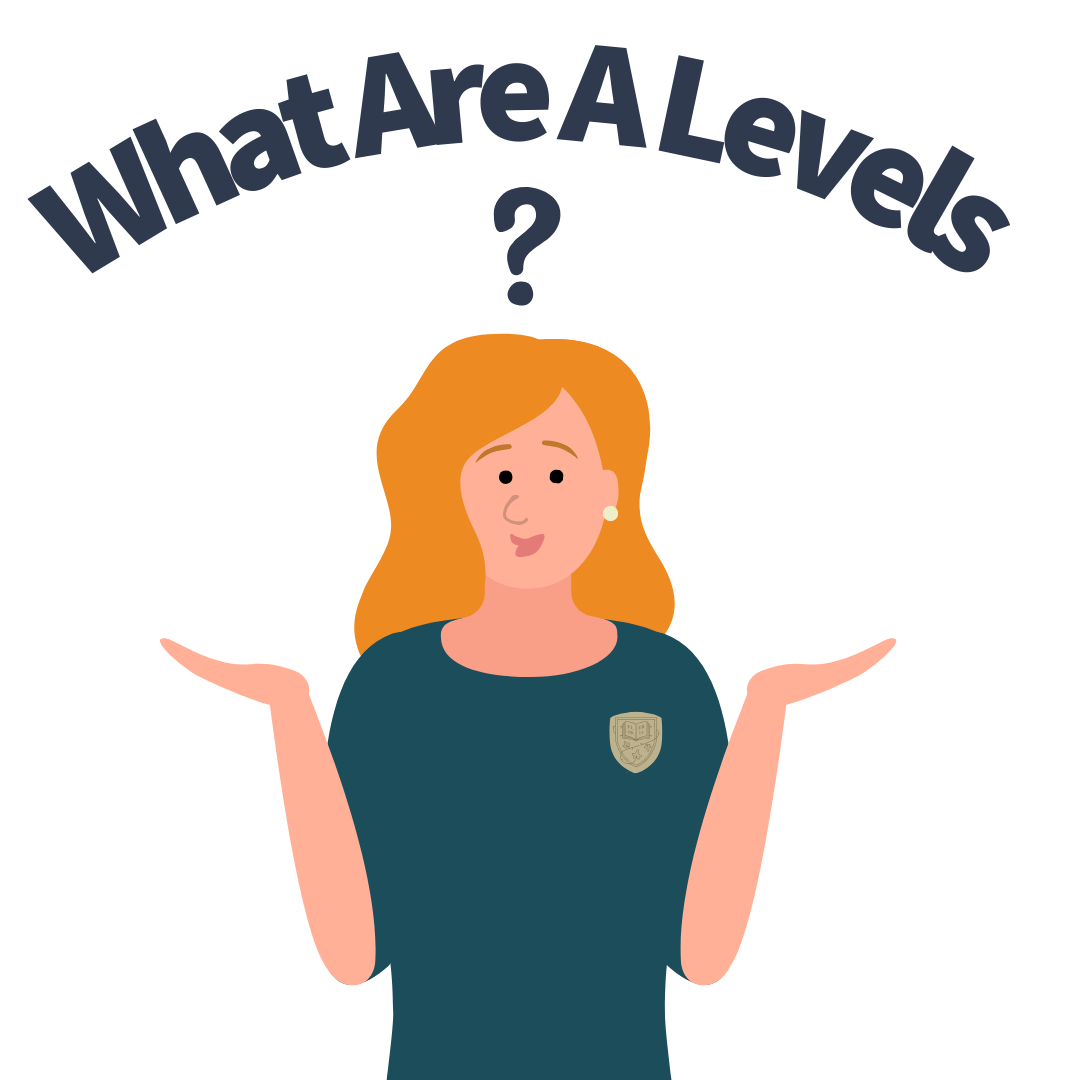Coming soon: Our Los Angeles Summer School. Register your interest here .
- How to Choose the Right A-levels: a Guide for GCSE Students

However, the decisions you make now will set you on a course that can be difficult to change, so it’s important to make the right subject choices at this early stage. The aim of this guide is to help you see things more clearly and get a good impression of the possible options, whether you have your heart set on a particular career path or not. We’ll consider the best A-levels to take for a variety of popular university subjects, and then give some more general advice if you’re not sure what it is you want to study.

How many A-levels should I take?
The minimum requirement even for the best universities is that you take three A-levels (excluding General Studies); these will be the basis of your offer. Some students choose to take on additional AS or full A-level subjects, giving them a total of four or five A-levels with which to apply to university. With the possible exception of the occasional Oxbridge college, you won’t be at a disadvantage for only taking three; indeed, it’s better to take three and get brilliant results in all three than it is to take on more than you can handle and get worse results because of it. Only take on what you think you can realistically manage, and talk to your teachers about the workload you can expect from the subjects you think you might want to study.
As a minimum, students will usually choose four AS-level subjects, one of which will be dropped at A2. General Studies is a compulsory fifth AS or even A2 subject at many schools, but will not usually count towards university admissions. It doesn’t require much extra study, however. One general piece of advice is: don’t take courses that are too similar. For instance, Biology is very similar to Human Biology. While it’s good to be fairly focused, it’s better to demonstrate a wider breadth of knowledge and skills by picking complementary but different fields, such as Biology and Chemistry. It’s also worth remembering that exam boards differ. For instance, OCR is reputed to be harder for Maths than AQA or Edexcel. While you probably won’t have any choice in which exam board you use unless you’re self-studying the subject in question, it’s worth looking up which exam board your school uses so you can be sure the kind of assessment you’ll receive will suit you.
The best A-levels for specific degree subjects
Let’s start by looking in detail at recommended A-level subjects for those who know what subject they want to take a degree in. We’ve covered the most common degree courses below. Universities typically differentiate between subjects that are essential for studying a particular course and subjects that are merely useful. Therefore in the subject lists that follow, those in bold are generally deemed essential for studying the subject, while those in italics are often seen as useful but not necessarily required. The rest are subjects that complement the course with transferrable skills or useful background knowledge, and are suggestions based on ideas offered by a selection of university admissions pages.
A-levels in Latin and Classical Greek are highly desirable if you want to study classics. We’ve marked them as essential below, as they are a requirement for many Classics courses. However, not all schools offer these subjects at A-level, and many universities also offer ab initio courses for those who haven’t studied the classical languages before. If you choose this option, you’ll may be required to attend a summer school or get your Latin and Greek up to a minimum standard in some other way during the summer preceding the start of your university course. – Latin – Classical Greek – Foreign Language, e.g. French or Italian – Classical Civilisations – Classics courses usually contain some element of studying the history and archaeology of the time, so a grounding in the basics will prove helpful if this option is open to you. – History – History of Art
Politics degree courses don’t usually carry any specific entrance requirements, and a mix of humanities and sciences will provide a solid foundation and good general knowledge. – History – Government and Politics – Geography – Sociology – Psychology – Economics – English Literature – Foreign Language – Law – Mathematics
Many music degrees have performance, theory, history and composition components. A-level Music, along with a high standard on at least one musical instrument (with practical and theory exam grades to prove it), will be essential or highly desirable. In addition to your main instrument, Grade 5 piano is often considered desirable. If your school doesn’t offer A-level music, some universities will accept ABRSM Grade 8 Music Theory instead (note that A-level Music Technology is unlikely to be considered a suitable alternative to A-level Music). Other than music, it’s up to you what else you study; essay-based subjects are useful, and it’s often said that musicians make good mathematicians (and vice versa)! – Music – English Literature – History – Mathematics
While there are usually no set requirements for studying Philosophy at university, a mix of arts and science subjects will prove useful – an arts-based subject will give you essay-writing skills, while science subjects help develop your logic and reason. If your school offers Philosophy it would be worth taking it; though it won’t be an advantage in applying (since not many schools offer it, it would put you at an unfair advantage), it will at least give you a feel for the subject and whether it’s something you’d like to pursue. – Philosophy – English Literature – English Language and Literature – History – Mathematics – Physics
Most universities have no specific entrance requirements for Geography – not even A-level Geography! – instead favouring a mix of humanities and sciences subjects. Geography is quite a wide-ranging subject and can focus on aspects to do with people (populations, demographics and so on) or on Earth processes. Note that even though Geography A-level isn’t usually a requirement, in practice most applicants will have it, and if nothing else, studying it at A-level will at least help you make sure it’s what you want to study at university. – Geography – Geology – Economics – Sociology – Environmental Science – Biology – Chemistry – Mathematics – Physics – Foreign Language
Engineering
The study of engineering at university typically requires A-levels in Mathematics and at least one other science, usually Physics. Further Mathematics is not usually given as an entrance requirement, but it is definitely highly desirable to at least AS level, as you’re likely to struggle without if you take engineering to degree level. Technology subjects are also seen as desirable by many universities. – Mathematics – Physics – Further Mathematics – Chemistry – Biology – Environmental Science – Geology – Geography – Computer Science – Design and Technology – Economics – Statistics
Oxford Royale offers summer courses in engineering for those that are looking to learn about the profession, develop skills and improve their chances to a successful application in the future.
Economists deal with a lot of numbers, so you’ll need Mathematics and ideally Further Mathematics to be able to study Economics at university. Economics at A-level is useful preparation, but don’t worry if your school doesn’t offer it; Business Studies is also seen as a good relevant A-level. – Mathematics – Further Mathematics – Economics – Business Studies – Government and Politics – Statistics
Oxford Royale offers summer courses in business for those that are looking to learn about the profession, develop skills and improve their chances to a successful application in the future.
With Chemistry and Mathematics generally seen as essential for the study of Chemistry at undergraduate level, it’s advisable to have at least one other science and Further Mathematics. We’ve included the most traditional and respected ones here; some universities will also accept subjects such as Computing, Design and Technology and Psychology as additional science subjects. – Chemistry – Mathematics – Physics – Biology – Human Biology – Further Mathematics
Further Mathematics, while not usually part of offers, is in reality something that most students will struggle without when it comes to studying physics as an undergraduate. It’s advisable to have at least two science subjects. As above, we’ve included the most well-respected subjects here. – Physics – Mathematics – Further Mathematics – Chemistry – Biology – Human Biology
As with the other sciences, at least two science subjects at A-level are recommended for studying a Biology degree. If you want to focus on Human Biology in your degree but your school doesn’t offer Human Biology A-level, you shouldn’t be at any disadvantage. Again, only the most well-respected subjects are included here. – Biology/Human Biology – Mathematics – Chemistry – Physics – Further Mathematics
Chemistry is normally considered essential for medicine, with at least one other science subject (normally Biology or Physics). In practice, the vast majority of applicants will have three or more science subjects, which will put them at an advantage over someone with only two sciences. – Chemistry – Biology/Human Biology – Physics – Mathematics – Psychology (note that this is unlikely to be considered for your second science subject; it might make a good AS subject or fourth A-level)
Oxford Royale offers summer courses in medicine for those that are looking to learn about the profession, develop skills and improve their chances to a successful application in the future.
Mathematics
Mathematics is essential. Further Mathematics is also essential at some universities, though most will offer catch-up classes if your school doesn’t offer it. If you can take Further Mathematics, you certainly should; a third science subject will strengthen your skills in related areas. This is the one exception to the rule that you should not take courses that are too similar. – Maths – Further Maths – Physics – Chemistry – Biology/Human Biology – Statistics – Computing
While no specific subjects are required, you’ll usually need a science A-level to study Psychology at university, ideally Biology and/or Mathematics. Social sciences and humanities subjects can provide useful background as well, and if Psychology is offered at your school then it’s worth taking it so that you know whether it’s something you’ll find interesting enough to take to degree level. – Psychology – Biology/Human Biology – Mathematics – Chemistry – Sociology
Computer Science
You don’t normally need to know any programming in order to take a Computer Science degree, but Mathematics is essential and Further Mathematics desirable. Taking at least one other science subject would also be useful. Many students think that ICT would be advantageous; in fact, it’s probably better avoided. – Mathematics – Further Mathematics – Physics – Chemistry – Computer Science – Electronics – Geology
Architecture
Architecture doesn’t necessarily require specific A-levels; what it does require is that you present a portfolio of your work, which is mostly easily achieved by taking an A-level that requires you produce that sort of coursework, such as Art or Art and Design. A minority of Architecture courses also require Maths. Some Architecture courses are more Art-orientated and others are more Maths or Physics-orientated, so bear this in mind when choosing your A-levels if you prefer a particular course or a particular university. – Mathematics – Art – Design and Technology – Further Mathematics – Physics – Chemistry – History of Art – Geology
Oxford Royale offers summer courses in architecture for those that are looking to learn about the profession, develop skills and improve their chances to a successful application in the future.
Keeping your options open
Many people have absolutely no idea what they want to do at university or for their career. That’s not a problem at all – it just means you need to keep your options open when it comes to your A-level choices. So what’s the best thing to do if you really have no idea? Choose subjects you enjoy – you’ll do better in your studies if you have an interest in the subject! Choose subjects in which you are predicted to get good GCSE grades – chances are you’ll do well in these subjects at A-level, too, earning you better grades and therefore more university options. Choose a range of subjects – both humanities and science subjects. This will give you the greatest choice when it comes to applying for university. It’s also worth thinking about the transferrable skills demonstrated by different subject choices. For example: – Essay-based subjects such as English Literature or History demonstrate analytical skills and critical thinking. – Science subjects such as Physics or Mathematics demonstrate logic and familiarity with scientific principles. – Practical subjects such as Art or Music demonstrate self-discipline and creative thinking. If you pick a range of subjects across these fields, you’ll have more than enough to show your capabilities in different areas.
Subjects best avoided for top universities
Taking more traditional A-level subjects such as English, History or the sciences will generally open up more doors for you than some of the newer subjects. The entrance requirements don’t always say it, but there are some subjects that aren’t looked on with much respect by many universities, particularly top ones. This is because some subjects don’t necessarily develop or demonstrate the academic and scholarly skills needed to succeed at undergraduate level. If you’re thinking of applying for a respected university, non-traditional subjects such as those below are best avoided unless they’re a fourth or fifth AS or A-level sitting alongside three solid traditional choices: General studies – this is compulsory at a lot of schools and colleges. Just bear in mind that it’s very unlikely to count towards your minimum three A-levels required for university admissions. Critical Thinking Media Studies – unless you’re applying for a degree in media or film studies, of course! Dance Home Economics
‘Facilitating’ subjects
Another source you might want to take into account when choosing your A-levels is the Russell Group’s list of so-called ‘facilitating subjects’ – particularly if you’re thinking of applying to a Russell Group university. The subjects are: – Mathematics and Further Mathematics – English Literature – Physics – Biology – Chemistry – Geography – History – Languages (Classical and Modern) These are the subjects that are most often required by top universities. It’s worth being clear it’s not an exhaustive list of ‘hard’ subjects, but instead it’s the case that picking options from this list will keep your options open. For example, taking Business Studies, Economics and Law will leave you well set for an Economics degree at most universities, but taking Mathematics, Geography and a language will be equally good preparation for an Economics degree while leaving a slew of other possibilities open to you, as well as being more respected by top universities. If you’re aiming for Oxford or Cambridge , choosing subjects from this list is even more important; Clare College in Cambridge says that “most of our successful applicants over the last couple of years have offered facilitating subjects for most or all of their A-levels.” So what do you do if most or all of your first choices of subject aren’t on this list? First of all, it depends on which degree you’re aiming for. If you’ve got your heart set on something like Music, Drama or Art, those subjects are more likely to form part of your A-level choices, even at top universities. Additionally, universities lower down the league tables will place less importance on your subject choices so long as they remain relevant to your course choice. But if you’re aiming for an academic subject at a Russell Group university – or a non-Russell Group university with a similar position in the league tables – you’ll need to take at least two subjects from the list above to give yourself a good chance of getting in.
Making the final choice
To help make your final decision, talk to your teachers and read the syllabus for each of the courses you’re potentially interested in. You could even pop to the library and take a look at some of the texts and course books you’d be expected to study. This will help you get a feel for what each subject is like, and should aid your decision-making process. Finally, good luck – you have an exciting time ahead of you and we hope this guide has helped you!
Comments are closed.
Programmes & Qualifications
- Classroom support
- Training and events
- Qualification
- Results statistics
- Grade threshold tables
Cambridge International AS & A Level subjects
Cambridge offers a range of Cambridge International AS & A Level teaching support and resource materials for each subject. Select the subjects below for details of the support resources available for each syllabus.
- Accounting - 9706
- Afrikaans - Language (AS Level only) - 8679
- Arabic - 9680
- Arabic - Language (AS Level only) - 8680
- Art & Design - 9479
- Biblical Studies (9484) New
- Biology - 9700
- Business (9609)
- Chemistry - 9701
- Chinese - Language & Literature (A Level only) - 9868 New
- Chinese Language (AS Level only) - 8238 New
- Classical Studies - 9274
- Computer Science - 9618
- Design & Technology - 9705
- Digital Media & Design - 9481
- Drama - 9482
- Economics - 9708
- English - Language and Literature (AS Level only) - 8695
- English - Literature - 9695
- English General Paper (AS Level only) - 8021
- English Language - 9093
- Environmental Management (AS only) - 8291
- European History - 9981 New
- French - Language (AS Level only) - 8682
- French (A Level only) - 9716
- French Language & Literature - 9898
- French Language (AS Level only) - 8028
- Geography - 9696
- German - Language (AS Level only) - 8027
- German - Language (AS Level only) - 8683
- German (A Level only) - 9717
- German Language & Literature (A Level only) - 9897
- Global Perspectives & Research - 9239
- Hinduism - 9487
- History - 9489
- Information Technology - 9626
- International History - 9982 New
- Islamic Studies - 9488
- Marine Science - 9693
- Mathematics - 9709
- Mathematics - Further - 9231
- Media Studies - 9607
- Music - 9483
- Physics - 9702
- Portuguese - Language (AS Level only) - 8684
- Portuguese (A Level only) - 9718
- Psychology - 9990
- Sociology - 9699
- Spanish - Language & Literature (A Level only) - 9844 New
- Spanish Language (AS Level only) - 8022 New
- Sport & Physical Education (AS Level only) (8386) New
- Tamil - 9689 (A Level only)
- Tamil - Language - 8689 (AS Level only)
- Thinking Skills - 9694
- Travel & Tourism - 9395
- Urdu - Language (AS Level only) - 8686
- Urdu - Pakistan only (A Level only) - 9686
- Urdu (A Level only) - 9676
- Urdu Language & Literature (9866) – for centres in Pakistan
- US History since 1877 - 8102 New
- US History to 1877 - 8101 New
To find English General Paper filter the subject list by ‘Humanities and Social Sciences’ or ‘English Language and Literature’. If you are interested in the Cambridge AICE Diploma please be aware that Cambridge International AS Level English General Paper only contributes to Group 4: Interdisciplinary subjects.
- Syllabus overview
- Past papers, examiner reports and specimen papers
- Published resources
The shortcut to your shortlist
Make your university search faster and less stressful. Get a personalised shortlist by selecting what matters to you.
- CHOOSE ONE OR MORE
Popular universities
- University of Kent
- University of East Anglia UEA
- University of Chester
- Coventry University
- University of Aberdeen
- University of Portmouth
- Nottingham Trent University
- University of Sunderland
- London Metropolitan University
- London South Bank University
- University of East London
- BROWSE ALL UNIVERSITIES
Course search
Popular undergraduate courses.
- Computer Science
- LLB Bachelor of Laws
- Biomedical Sciences
- Physiotherapy
- Sports Science
Open days search
Upcoming open days.
- Birmingham Newman University
- Liverpool Hope University
- Leeds Trinity University
- Edge Hill University
- Leeds Conservatoire
- University of Derby
Article search
Popular topics.
- UCAS key dates and deadlines
- Choosing where to study
- Creating your shortlist
- Student life
Popular articles
- What's a university open day
- How to plan for a university open day
- Open days - December 2024
- Choosing a university checklist
- Choose your UCAS final five with Uniselect
- BROWSE ALL ADVICE
Choosing A Levels
Choosing your a level subjects is a big decision. read our advice on how to decide, whether you know what you want to study at university or not..
What are A Levels?
Which subjects should you choose, university courses with specific requirements.
A Levels (Advanced Levels) and AS Levels (Advanced Subsidiary) are courses that students in England, Wales and Northern Ireland take after GCSEs. They're the most common qualifications for university admission. Other qualifications include Scottish Highers/Advanced Highers and other alternatives to A Levels .
A Levels are two-year qualifications that give students a chance to study an existing GCSE subject in greater depth or try a completely new subject like Law, Drama or Economics.
What to expect from A Levels
- An increase in difficulty compared to GCSEs
- Differences in the way you’re taught and what's expected from you
- More independent study time – you'll only have between three and five subjects to study as opposed to ten or more at GCSE, meaning less time in the classroom
How many A Levels can you take?
Students can take up to five A Levels but you generally choose three A Levels to study for a two-year course. You can decide to work towards AS qualifications or combine the two. Discuss your options with your school or college and find out whether they'll offer both AS and A Levels so you can decide the best route for you. The vast majority of schools and colleges now focus on A Levels, with the one-year AS Level less popular and available.
If you already know what you’d like to study, you can contact the university admissions office and ask about entry requirements for the course(s) you’re interested in.
How many GCSEs do you need to do A Levels?
Most schools and colleges will expect you to have gained at least five 9–4 (A*–C) grades in your GCSEs. However, other pathways are available including BTEC and other vocational courses.
Requirements can vary from four to six passes, so you should check with your school or college. Often you'll need a GCSE at grade 5–6 (B) or above in a subject if you want to continue it at A Level.
GCSEs have also changed in recent years, with most students in England now getting new numerical grades (9–1) and changes to exams, coursework and specifications.

Take advice from your school careers advisor and university admissions departments so you can make an informed decision based on accurate and up-to-date information. It’s worth asking questions and researching entry requirements for courses at various universities to get a good idea of the subjects you should take.
Things to consider when choosing your A Levels
If you want to go to university, the main question to ask yourself is: 'Do I know what I want to study at university?'. Your answer will dictate which subjects you should choose for A Levels.
It’s perfectly normal not to know what you want to do for a career, or what you want to study at university. Many graduates go on to work in fields unrelated to their chosen degree. However, if you have aspirations for a certain career, you'll need to take a related degree. For example, subjects such as Law, Medicine, Architecture and Veterinary Science will all need specific qualifications.
If you already know what you want to study at university
Knowing what you want to study at university puts you in a good position when choosing your A Levels. Your first step should be to check entry requirements on university websites for your chosen course.
A lot of courses will specify at least one subject you'll need to have studied at A Level. For example, Medicine, Veterinary Science and certain Engineering courses may need three specific subjects. Also some universities publish a list of preferred A Level subjects that are acceptable for general admission, as well as specific requirements for individual courses.
If you don't know what you want to study at university
You may not be sure what you want to study at university, or if you want to go at all. Don’t worry, as it means you can choose whichever subjects you want (within reason) and let that dictate your degree choice should you go on to study at university.
There are eight 'facilitating' subjects listed by Russell Group universities to help you keep your degree options open until you decide which course to take:
- English Literature
- Maths and Further Maths
- Modern and Classical Languages
Generally speaking, taking two facilitating subjects will keep a wide range of degrees open to you. Make sure you still choose subjects you like – you'll be studying them for the next two years.
If you’re still uncertain, phone or email the university admissions or schools liaison team for their advice before finalising your choices.
Other factors to consider when choosing A Levels
- What you're good at – your career or degree plans may change so make sure you choose subjects you can do well in
- What you enjoy – if you don’t enjoy a subject at A Level but need it for a specific university course, you might want to reconsider your degree preference
- Your subject combination – if you're taking a science A Level, for example, you should consider whether you need to look at taking another science or maths subject
- The syllabus – knowing the course content should tell you whether a particular A Level is the right option for you
- The workload you can handle – for example, some courses may involve a lot of essay writing, so be realistic about how much work you can do
Course entry requirements are used to help admissions staff at universities pick students for their courses. Many courses will have more applicants than places so they'll set an entry requirement to allow them to reduce the number of students to consider.
Specific course requirements (e.g. Chemistry and Biology for a Biochemistry course) are there to make sure students can cope with the pressures of the course content itself. The majority of university courses look for at least Cs in GCSE English and Maths. Some courses go further and list specific subjects and grades they expect you to have.
Remember that some courses may only consider certain A Level qualifications or accept certain qualifications when taken with another. This will depend on what the university department is looking for.
For example, a History department may be looking for students who can write essays and handle exams, and so might have a preference for A Level or Highers students. If you’re a BTEC student, look out for courses that name specific units you need to pass with specific grades.
Check our subject guides to see if a course might need specific A Level subjects (or equivalent).
Keep in mind
- Some universities discourage students from taking certain combinations of A Levels – this tends to be for very similar subjects such as Business Studies and Economics, or Maths and Further Maths
- Core Maths generally isn't a suitable substitute for AS or A Level Maths or Further Maths
- If you do too many practical or vocational subjects (such as PE, Music Technology, Media Studies, Textiles or Drama), it may limit what you can study at university – some universities include these in lists of 'non-preferred' subjects
- Highly selective courses such as Medicine may state that A Levels should be taken in the same sitting after no more than two years of study – this can affect you if you're looking to repeat some exams after sixth form or if you’ve taken some exams early
Related articles

Four reasons to study Land & Property Management
There are many reasons to study Land & Property Management. Explore four valuable ways...

Five reasons to study Art & Design
Art & Design has many real-life applications and career prospects. Discover five of the...

Ten reasons to study Veterinary Medicine
If you're interested in a degree in Veterinary Medicine, here’s ten of the best reasons...
Is this page useful?
Sorry about that..., how can we improve it, thanks for your feedback.
- Online Games
- E-Learning Platforms
- Student Life
- Work Online In Education
- Media Releases
- Content Marketing

More Trending News

Sharing is caring!
Embarking on their A Levels is a pivotal moment in a student’s academic life.
The choices made during this time can significantly impact future educational and career paths. To help prepare them for this exciting but challenging academic period, we’re about to navigate the intricate process of choosing A level subjects.
Along the way, we’ll offer plenty of insights and tips, to provide a compass that will hopefully help students chart a course towards a successful and fulfilling academic experience.
Understanding the Significance of A Levels
A levels, or Advanced Levels, are a crucial stage in the UK education system. They not only represent a bridge between the familiar territory of GCSEs (General Certificate of Secondary Education) and the unexplored realm of higher education but also serve as a foundation for future academic and professional pursuits.
The subjects chosen during this phase play a vital role in shaping a student’s academic profile and, by extension, their career options.
Decoding the A Level Structure

Before delving into the decision-making process, it’s essential to understand the structure of A levels . A standard full-time A level program typically involves studying three subjects over two years.
However, the flexibility of the system allows students to tailor their choices based on their interests and career aspirations. Each subject is usually assessed through a combination of A level exams and coursework, with the final results determining eligibility for university admission.
Assessing Personal Interests and Passions
The first compass point in navigating A level choices is identifying personal interests and passions. Reflecting on subjects that genuinely spark curiosity and enthusiasm is a solid starting point.
Whether it’s a fascination with the sciences, a love for languages, or a passion for the arts, selecting subjects that align with personal interests not only makes the learning experience more enjoyable but also sets the stage for academic success.
Considering Future Career Aspirations
A level choices are not just about the present; they are a strategic investment in future career aspirations. Students should consider the career paths they envision and the academic requirements for those paths.
Exploring potential professions, talking to professionals in the field, and understanding the A level subjects preferred by universities for specific courses can help align academic choices with future goals.
Balancing the Equation: Mixing Sciences, Arts, and Humanities
A well-rounded education often involves a balance of sciences, arts, and humanities. While specialisation is encouraged, a mix of subjects can provide a holistic learning experience.
For example, a student interested in pursuing a career in medicine may choose a combination of Biology, Chemistry, and another subject like Mathematics or Physics. This balance not only showcases versatility but also opens diverse academic and career opportunities.
Consulting Teachers and Advisors

The school’s teachers and academic advisors are valuable resources in the decision-making process. They possess insights into a student’s academic strengths, potential areas of improvement, and can offer guidance based on their experience.
Scheduling one-on-one sessions with teachers or attending school-organised career guidance sessions can provide personalised advice tailored to individual academic profiles and aspirations.
Exploring Taster Sessions and Open Days
Many schools and colleges organise taster sessions or open days where students can experience the teaching style, curriculum, and atmosphere of different A level subjects.
Actively participating in these events can offer a firsthand look into the subjects under consideration, helping students make informed decisions based on their preferences and compatibility with the learning environment.
Anticipating University Entry Requirements

Aspirations for higher education often influence A level choices. Researching the entry requirements for preferred universities and courses is crucial. Different universities may have varying subject prerequisites, and being aware of these early on allows students to tailor their choices accordingly.
Some courses may require specific A level subjects or a combination of subjects, emphasising the importance of aligning choices with long-term goals.
Considering the Workload and Time Commitment
A level studies can be demanding, requiring a significant time commitment for coursework, independent study, and exam preparation.
It’s important to realistically assess the workload associated with chosen subjects. Striking a balance between challenging oneself and ensuring manageable stress levels is key. Choosing subjects that align with personal strengths while allowing room for growth is a prudent approach.
Embracing Flexibility and Adaptability

While careful consideration is essential, it’s equally important for students to embrace flexibility and adaptability in their A level journey.
As interests evolve and new opportunities arise, the initial choices made at the start of the A level program can be revisited. The ability to adapt to changing circumstances and seize new academic interests is a valuable skill that extends beyond A levels into higher education and professional life.
Making the Most of A Level Revision Resources
As students embark on their A level journey, it’s crucial to recognise the importance of effective revision. Save My Exams, for example, provides this A level revision hub that offers a wealth of resources to aid students in their studies.
From subject-specific materials to practice exams and revision guides, this online platform serves as a valuable companion in the preparation process. Encouraging students to explore and utilise this resource early on can enhance their understanding of A level subjects and contribute to their overall success.
Overcoming Challenges: Addressing Common Concerns

Choosing A level subjects can be accompanied by a fair share of concerns and uncertainties. It’s common for students to worry about making the “right” choices and the potential impact on their future.
Addressing these concerns is an integral part of the decision-making process. Encourage students to recognise that it’s okay to feel uncertain and that flexibility is built into the system. Emphasise that A levels are not just about a final destination but a journey of exploration and growth, where adjustments can be made along the way.
Sharing anecdotes of individuals who navigated through uncertainties and found success can provide reassurance.
The Decision-Making Process: An Ongoing Dialogue
Choosing A level subjects is not a one-time decision but an ongoing dialogue. Regular check-ins with teachers, reassessing personal interests, and staying informed about academic and career possibilities ensure that A level choices remain aligned with evolving aspirations.
The decision-making process is a dynamic journey, and students should feel empowered to make adjustments based on their academic growth and changing ambitions.
Beyond A Levels: Exploring Enrichment Opportunities

While A level subjects form the core of academic studies, students should also explore enrichment opportunities to enhance their overall educational experience. This can include participating in extracurricular activities, joining academic clubs, or pursuing additional qualifications.
Enrichment opportunities contribute to personal development and add depth to university applications. Encouraging students to seek a balance between academic studies and enrichment activities ensures a holistic and rewarding A level experience.
In Conclusion: Setting Out with Confidence
Navigating A level choices is a significant milestone that sets the course for a student’s academic future.
By approaching the decision-making process with a blend of self-reflection, guidance from educators, and a strategic outlook on future goals, students can set sail into the A level journey with confidence and purpose.
At the end of the day, each subject chosen becomes a stepping stone towards academic excellence, personal growth, and the realisation of dreams.
Author Profile

Latest entries
Author Archives

- choosing a levels for students
- comprehensive a level guide
- how to choose a level subjects
- navigating student subject options

UK Education Blog

The UK Education Blog provides regular news and insights into education, EdTech, eLearning, teaching and everything education professionals, parents and carers looking after children and students would want to know.
14 Best Free Math Apps for Kids At Home
Best 8 stem subjects apps for children, navigating mobile bingo gaming with confidence, distance learning, online business courses: balancing pros and cons for career advancement, 4 best online courses for business students, 6 best saxophone online courses to help you learn to play saxophone like a pro, popular categories.
- learning 70
- student life 53
- education 36
- Teaching 34
- Online Education 29
- Media Releases 27
- schooling 26
- Press Releases 14
- online games 14
- language learning 12
© UK Education Blog
- Content Publishing Policy
- Content Copyright
- Privacy Policy
[mc4wp_form id=”872″]
- What are A-levels?
Published 10th May 2024 by Alastair
- UK Universities
- Expert Insights

Comprehensive Guide to the UK Education System in 2024
Transitioning from the realm of GCSEs to the next stage —A Levels— becomes a critical milestone for UK students aspiring to enter university. These advanced qualifications hold immense importance, serving as the bridge to higher education and future career paths. In this article, we delve into the finer details of the A Level qualification, examining its structure, significance, and impact on academic and professional trajectories.
What are A Levels?
A Levels, formally known as Advanced Level qualifications, play a pivotal role in the UK education system, marking a significant progression from GCSEs. Typically undertaken by students in Year 12 and Year 13 of secondary education, A Levels offer a specialised and rigorous academic path. Lasting for a duration of two years, typically beginning at age 16 or 17, A Levels provide students ample time to delve deeply into their chosen subjects, fostering a comprehensive understanding and honing vital skills for future academic pursuits or career aspirations.
Why Choose A Levels?
- Universally acknowledged by universities for admission purposes
- Allows for deeper specialisation in chosen subjects
- Provides flexibility to customise studies according to individual interests and career goals
- Establishes a strong academic groundwork
- Enhances critical thinking, analytical prowess, and research skills
- Considered the most traditional pathway to higher education
If you want to learn more about what A Levels offer you over other higher-level certifications, our article on the Differences between IB and A Levels thoroughly compares both qualifications.

Are A Levels Right for You?
As explained in the section above, A Levels provide a more traditional academic pathway, often favoured by universities for admission. Therefore, if you are looking to follow a more traditional academic career path, then A Levels would be a good option.
For students with different learning styles or career ambitions, alternative qualifications available in Year 12 and 13 present compelling options. The International Baccalaureate (IB) Diploma Programme, for instance, offers a holistic education with a strong emphasis on critical thinking, intercultural understanding, and global engagement. You can find out more about the difference between IBs and A Levels in this article .
Similarly, vocational qualifications such as BTECs (Business and Technology Education Council) provide hands-on, practical learning experiences tailored to specific industries, appealing to students with a preference for applied learning.
Furthermore, apprenticeships offer an alternative route for students keen on gaining practical work experience while studying towards a recognised qualification. Through apprenticeship programmes, students can acquire valuable skills and industry-specific knowledge, paving the way for a smooth transition into the workforce upon completion.
Ultimately, the decision between A Levels and alternative qualifications hinges on individual preferences, career aspirations, and learning styles, with each option offering distinct advantages tailored to diverse educational and professional pathways.
What Grades Do I Need to Take A Levels?
Students usually enter A Level courses after completing their GCSEs or equivalent qualifications, however, there are no explicit requirements to complete GCSEs to take A Levels. While specific requirements can vary depending on the institution, students are generally expected to have attained a certain level of academic achievement in GCSEs or an equivalent qualification, often including passes in English and Mathematics. These GCSE grades required for entry to A Level courses commonly range from grades 9-4 or A*-C.
Transitioning from GCSEs to A Levels often involves a significant increase in difficulty for many students. This transition is marked by the heightened expectations of independent study, deeper conceptual understanding, and more rigorous assessment methods characteristic of A Level education. As a result, some students may experience challenges adjusting to the academic demands and pace of A Level study initially. However, with dedication, effective study habits, and support from teachers, students can successfully navigate this transition and excel in their A Level courses.
Who Are A Levels For?
- Are looking to pursue higher education, as A Levels are widely recognised by UK and International Universities.
- Have a clear vision of academic or career goals. Typically, students who excel in STEM subjects, or are academically adept and are looking to pursue more traditional career paths will benefit from taking A Levels.
- Are intellectually curious, motivated, and enjoy delving deeply into subjects.
- Demonstrate self-discipline and embrace challenges as opportunities for growth.
What Subjects Can You Study:
You can find a more comprehensive breakdown of A Levels you can take in our article on The Hardest A Levels in 2024 . However, the top 10 most popular A Level subjects are:
- Mathematics
- Business Studies

How to Choose A Level Subjects:
If you’re up for a challenge and are curious on what the more difficult A Level subjects are, you can find that out here.
Here are some tips to guide you through the process:
- Identify subjects that genuinely interest you and align with your strengths. Consider subjects you enjoy studying and excel in, as this will help maintain your motivation and engagement throughout the A Level course.
- Investigate the entry requirements for your desired university courses or degree programmes. Some universities may have specific subject prerequisites or preferences, so ensure your chosen A Level subjects meet these criteria. If you're unsure, reach out to university admissions teams at your school for clarification.
- Certain professions may require specific A Level subjects or prefer candidates with a particular academic background. Tailoring your A Level choices to align with your career goals can enhance your prospects in the future job market.
- While it's essential to choose subjects that reflect your interests and career aspirations, it's also wise to keep your options open. Select a balanced combination of subjects that offer versatility and flexibility, allowing you to explore different fields of study and keep doors open for future opportunities.
- Don't hesitate to seek advice from teachers, careers advisors, or subject experts when making your A Level subject choices. They can provide valuable insights, guidance, and information about the suitability of different subjects based on your interests, strengths, and future plans.
- Consider the workload and demands of each A Level subject, as well as your ability to manage them effectively. Be realistic about your academic capabilities and workload capacity to ensure you can maintain a balance between your studies and other commitments. It is often advised not to take more than four A Levels (where one is typically dropped in the first year) and spread your efforts too thin.
By carefully considering your interests, university requirements, and career goals, you can choose the right A Level subjects that will set you on the path to academic success and future career fulfilment.
How Are A Levels Assessed?
Examinations:
A significant portion of A Level assessment is conducted through written examinations, which are typically held at the end of the two-year course. These exams assess students' ability to recall and apply knowledge, analyse information, and demonstrate critical thinking skills. Examinations may consist of essay-style questions, short-answer questions, multiple-choice questions, and practical assessments, depending on the subject.
Coursework: In addition to examinations, some A Level subjects may include coursework components, which allow students to demonstrate their skills through practical tasks, research projects, or extended essays. Coursework assessments provide students with opportunities to showcase their understanding of concepts, apply theoretical knowledge to real-world scenarios, and develop essential skills such as research, analysis, and problem-solving.
Now, here's a table outlining the A Level grading system:
The grading system ranges from A* (the highest grade) to U (ungraded). Grades A* to E are considered passing grades, with A* and A representing the highest levels of achievement. The grading criteria are based on the percentage of marks obtained in examinations and coursework components, with specific grade boundaries set by examination boards for each subject.
Overall, the A Level grading system provides a comprehensive assessment framework to evaluate students' academic performance and achievements across their chosen subjects.
What Happens on A Levels Result Day?
On The Day A-level Results Day follows a familiar pattern each year. Usually, results day is on or around the 15th of August, with results accessible from 06:00am onwards.Students usually collect their results from their school or college, but many schools and colleges make A-level results available online, as well as via email or post. Depending on the student’s performance, here is a breakdown of the different types of offers Universities, as well as alternative routes should the student not achieve their expected grades:
Conditional and/or Unconditional Offers Conditional offers are made by universities to students contingent upon them meeting certain conditions, usually specific A-level grades or other qualifications. For example, a university might offer a student a place on a course with the condition that they achieve grades AAB in their A-level exams. Conditional offers are common and are based on predicted grades or achieved grades at the time of application.
Unconditional offers, on the other hand, are offered regardless of the student's exam results. This means that the student has already secured a place on the course without having to meet any further conditions related to their grades. Unconditional offers are less common and are typically made to students who have already achieved the required grades or have demonstrated exceptional academic performance.
It can also be challenging for those who don't achieve their expected grades, prompting the exploration of alternative options like re-sitting exams or entering the Clearing process facilitated by UCAS.
Clearing Clearing is a process facilitated by UCAS that provides students who haven't secured a university place with an opportunity to find available courses. It typically opens in July and continues through to September. During clearing, students can search for courses with vacancies and contact universities directly to discuss their options. Once a suitable course is found, students can add it as their Clearing choice through UCAS Track.
Regardless of the outcome, A Levels result day signifies a transition to the next stage of life, whether it be university, employment, or further education. It's a day of reflection and decision-making as students look towards the future with optimism and determination.
What Can You Do After A Levels?
Some opt for vocational training or apprenticeships to gain practical skills and industry-specific qualifications, providing direct pathways to employment.
Entering the Workforce Others may decide to enter the workforce directly, exploring entry-level positions, internships, or trainee programmes in various sectors.
Gap Year Some students take a gap year to travel, volunteer, or gain life experiences before committing to further education or employment, providing opportunities for personal growth and exploration.
Ultimately, the choice depends on individual preferences, personal circumstances, career aspirations, and long-term objectives.
What are A-Levels in the UK?
What is an a level equivalent to, are a-levels year 12 or 13.
A Levels are divided into two parts: AS-Levels and A Levels. A-Levels are the combination of the whole qualification taken over the two years, while AS-Levels would be the qualification for just the first year. This is why it is possible to drop a subject after the first year, and students typically choose four subjects in year 11 and drop one subject after the end of year 12. After going through a reform in 2015, the format of A Levels and AS Levels changed. The Student Room provides a comprehensive article that breaks down how A Levels are structured.
Can you do A-Levels without GCSE?
There are no requirements to study GCSEs before A levels. Otherwise, international students, for example, would have to study for an extra two years! Most students typically take A Levels through their school or sixth-form college and will naturally transition from GCSEs to A Levels. Older students, or students who have not taken their GCSEs, will typically find a local education centre or sixth form college to apply for A Level qualifications.
How do I balance my workload with multiple A Levels?
Effective time management, prioritisation, and seeking support from teachers or tutors can help balance the workload of multiple A-level subjects. Ivy Education have also created a GCSE Revision Guide to help students handling their workload. Yes, this isn’t an A Level Guide, but the tips are completely transferrable! Read it here.
What are the benefits of taking A Levels compared to other qualifications?
A-levels offer depth of study, flexibility, and are widely recognized by universities, providing pathways to higher education and career opportunities.
How can Ivy Education help me succeed in my A Levels?
We offer tailored support, including subject-specific tutoring, exam preparation, and academic guidance to help students excel in their A-level studies. If you are interested in our full range of services, please contact us today !
Are online resources enough for A Level preparation, or should I consider tuition?
While online resources can be valuable, personalised tuition provides individualised support, feedback, and guidance tailored to students' specific learning needs and goals.
Ivy Education offers A Level specialist tutors who have had years of experience in helping students get into the the world’s top academic institutions.
They provide a rigorous and versatile educational experience, fostering critical thinking, subject expertise, and transferable skills crucial for success in higher education and the workforce.
With their international recognition and direct pathways to university entry, A Levels offer students opportunities to pursue their passions, specialize in their chosen fields, and unlock a world of career possibilities.
For those seeking personalised support and expert guidance to excel in their A Levels, Ivy Education is here to help. With Ivy Education's dedicated tutors , specialist consultants , and dedicated resources, students can confidently navigate their A-level studies and achieve their academic goals.
Need more help?
We are experts in providing bespoke online and in-person one-to-one A-Level tutoring.

BY Alastair
Alastair Delafield is the Managing Director and founder of Ivy Education.
Other Articles

Best Grammar Schools in the UK (2025)

What Is Higher Education? Differences between Further and Higher Education

A Complete Guide to Every GCSE Exam Board

The Ultimate 11+ Past Paper Resource List
- ← Previous
- Next →
← All Articles
As featured in

Contact our education team
Find out about our tuition services, your basket (0).
- Order Subtotal £0.00
- Discount £0.00
- TOTAL £0.00
Your Courses Timetable
There aren’t any items in your basket as yet.


A-Level Grades Explained
Megan Isaac
A-Levels are a crucial stage of education for many students in the UK. These exams are typically taken in the final two years of school and are often used by universities and employers to determine academic ability. But how do A-Level grades work, and what do they mean for your future? In this guide, we'll cover everything you need to know about A-Level grades.

A-Level results in the UK from 2000 to 2022, by grade
How A-Level Grades are Determined
Level grades are determined by a combination of coursework and exams. The specific requirements vary depending on the subject, but generally, you'll need to complete a certain number of assessments and exams over the two-year period. See TutorChase’s article ‘Which A-Levels Don’t Have Coursework’ to see which courses are completely exam-based. Coursework is marked by your teachers, and then moderated externally to ensure consistency. In most subjects, there is scope for remarking if the moderator thinks it is necessary.
Once all of your assessments and exams have been completed, your overall grade will be calculated based on your performance in each component. The exact formula used to calculate your grade will depend on the subject, and you can usually find this information on the course website.
If you want to dive into even more detail about how your exams and coursework is graded, we highly recommend looking at the specific marking criteria provided by the exam board. Whilst this information can sometimes feel a bit generic, it is a great habit to compare your work against the criteria set out by the examiners, as this is exactly how your work will be marked.
For instance, Edexcel A-Level Economics past papers, which can be found online here include the following general marking guidance:

As well as providing specific marking criteria that the examiner will apply for each question:

You can also find similar information for any piece of coursework you submit.
Linear and modular qualifications
Linear qualifications.
A linear qualification means that you are assessed at the end of the course after all of your study has taken place. So usually after two years of study for A-Level and one year of study for AS. For linear qualifications, all of the marks for the different exams are added together and you are given a grade.
Modular qualifications
A modular qualification is taught in units throughout the course and you take an assessment at the end of each unit. Because some papers may be easier or harder than others, students are usually graded on modular qualifications according to a Uniform Mark Scheme (UMS).
To achieve an A* in a modular A-Level, you need to achieve a grade A on the A-Level overall and also achieve 90% or higher of the maximum uniform mark on your A2 units. This is quite complicated, and is part of the reason why A-Levels have been reformed to favour the linear system. Not many people take the modular system anymore, most students will likely be part of the linear system, so your AS results no longer contribute to A-Level qualifications. This means there is no longer a need for the complex rule which is used to calculate A* grade for modular A-Levels.
Why do the grade boundaries change every year?
AS, A-Level and GCSE qualifications in the UK are awarded using the ‘comparable outcomes’ approach. This means that if the group of students in one year are a similar ability to those in the previous year, then the overall results at a national level should be comparable.
Since each exam has new questions, sometimes exam papers are easier or harder than previous years. The exam boards therefore use statistical approaches and the insights of senior examiners to ensure that the grades reflect the ability of the cohort, rather than the difficulty of the exam. This ensures that the system is fair to students. This can be quite a complex process, but if you are interested in the details, take a look at Pearson’s Comparable Outcomes Guide .
Understanding the Grading System
A-Level grades are assigned on a scale from A* to E, with A* being the highest grade possible. Some courses may also offer a grade U (ungraded). In order to achieve an A* grade, you'll need to perform exceptionally well in both your coursework and your exams. This is the equivalent of achieving a grade 9 at GCSE.
In order to achieve a grade A , you'll need to perform well across all components of the course. This is the equivalent of achieving a grade 7 or 8 at GCSE.
A grade B indicates that you have performed well overall, but may have some weaker areas that you need to work on. This is the equivalent of achieving a grade 6 at GCSE.
A grade C indicates that you have met the minimum requirements for the course. This is the equivalent of achieving a grade 4 or 5 at GCSE.
A grade D indicates that you have not met the requirements for the course, but have still achieved a pass. This is the equivalent of achieving a grade 3 at GCSE.
A grade E indicates that you have not met the requirements for the course, and have not achieved a pass. This is the equivalent of achieving a grade 2 or below at GCSE.
It's worth noting that some courses may also offer a grade U, which means that you were ungraded for the course. This could be because you did not complete all of the necessary components, or because your work did not meet the minimum requirements for a grade.
What Happens After Receiving Your Grades
Once you have received your A-Level grades, the next step is to decide what to do with them. For many students, the goal is to use their grades to gain entry to university. Universities will typically have minimum entry requirements for their courses, which will often include specific A-Level grades.
If you don't quite achieve the grades you were hoping for, don't panic! There are still options available to you. You may be able to enter a different course or university through the clearing process, or you may be able to improve your grades through resitting exams or taking a gap year.
It's worth noting that A-Level grades are also used by many employers to determine academic ability. So even if you don't plan on going to university, your A-Level grades can still have an impact on your future career prospects.
That being said, A-Levels are not the only way to get into university and many careers recognise work experience or other qualifications. See our guide on going to university without A-Levels for more information.
Tips for Achieving Your Best Grades
Now that you know how A-Level grades work, how can you ensure that you achieve your best results? Here at TutorChase, we excel in helping students achieve the highest A-Level grades and have plenty of information and support to offer you. Why not take a look at our blog which has plenty of articles covering all your top A-Level questions, including some subject-specific advice and tips from our expert A-Level tutors .
Need help from an expert?
4.93 /5 based on 509 reviews
The world’s top online tutoring provider trusted by students, parents, and schools globally.
Study and Practice for Free
Trusted by 100,000+ Students Worldwide
Achieve Top Grades in your Exams with our Free Resources.
Practice Questions, Study Notes, and Past Exam Papers for all Subjects!
Need Expert Help?
If you’re looking for assistance, get in touch with the TutorChase team and we’ll be able to provide you with an expert A-Level tutor . We’ll be there every step of the way!

Professional tutor and Cambridge University researcher

Written by: Megan Isaac
Megan recently graduated from Oxford University, achieving a first class degree in PPE. She has has six years of tutoring experience, teaching a range of subjects at GCSE and A-Level, as well as helping students with their applications to university including Oxbridge.
Related Posts

Which A-Level Revision Technique Is Best For You?

How to Revise A-Level Biology

A-Level Economics vs. A-Level Business

Hire a tutor
Please fill out the form and we'll find a tutor for you
- Select your country
- Afghanistan
- Åland Islands
- American Samoa
- Antigua and Barbuda
- Bosnia and Herzegovina
- Bouvet Island
- British Indian Ocean Territory
- Brunei Darussalam
- Burkina Faso
- Cayman Islands
- Central African Republic
- Christmas Island
- Cocos (Keeling) Islands
- Congo, The Democratic Republic of the
- Cook Islands
- Cote D'Ivoire
- Czech Republic
- Dominican Republic
- El Salvador
- Equatorial Guinea
- Falkland Islands (Malvinas)
- Faroe Islands
- French Guiana
- French Polynesia
- French Southern Territories
- Guinea-Bissau
- Heard Island and Mcdonald Islands
- Holy See (Vatican City State)
- Iran, Islamic Republic Of
- Isle of Man
- Korea, Democratic People'S Republic of
- Korea, Republic of
- Lao People'S Democratic Republic
- Libyan Arab Jamahiriya
- Liechtenstein
- Macedonia, The Former Yugoslav Republic of
- Marshall Islands
- Micronesia, Federated States of
- Moldova, Republic of
- Netherlands
- Netherlands Antilles
- New Caledonia
- New Zealand
- Norfolk Island
- Northern Mariana Islands
- Palestinian Territory, Occupied
- Papua New Guinea
- Philippines
- Puerto Rico
- Russian Federation
- Saint Helena
- Saint Kitts and Nevis
- Saint Lucia
- Saint Pierre and Miquelon
- Saint Vincent and the Grenadines
- Sao Tome and Principe
- Saudi Arabia
- Serbia and Montenegro
- Sierra Leone
- Solomon Islands
- South Africa
- South Georgia and the South Sandwich Islands
- Svalbard and Jan Mayen
- Switzerland
- Syrian Arab Republic
- Taiwan, Province of China
- Tanzania, United Republic of
- Timor-Leste
- Trinidad and Tobago
- Turkmenistan
- Turks and Caicos Islands
- United Arab Emirates
- United Kingdom
- United States
- United States Minor Outlying Islands
- Virgin Islands, British
- Virgin Islands, U.S.
- Wallis and Futuna
- Western Sahara
Your details

Alternatively contact us via WhatsApp, Phone Call, or Email
Clearing Universities & Courses
Clearing Advice
Recommended Clearing Universities
Popular Course Categories
Take our quick degree quiz
Find the ideal uni course for you with our Course Degree Quiz. Get answers in minutes!
Take our full degree quiz
Get more tailored course suggestions with our full Course Degree Quiz and apply with confidence.
Search by Type
Search by Region
Recommended Universities
,-Bristol.jpg)
UWE, Bristol
South West England · 97% Recommended

University of Bedfordshire
East of England · 94% Recommended

Swansea University
Wales · 99% Recommended
Search Open Days
What's new at Uni Compare

100% of our students surveyed recommend studying at Swansea university. Apply now!

University of Sunderland
Apply to Sunderland, a top 40 UK University (GUG 2025) in the UK's 3rd cheapest city.
Ranking Categories
Regional Rankings
More Rankings

Top 100 Universities
Taken from 131,500+ data points from students attending university to help future generations

About our Rankings
Discover university rankings devised from data collected from current students.
Guide Categories
Advice Categories
Recommended Articles
Popular Statement Examples
Statement Advice

What to include in a Personal Statement

Personal Statement Tips
A-Levels and AS-Levels Explained
A-Levels and AS-Levels are an important part of the UK education system, offering students a pathway to higher education or the workforce.

However, the system can be confusing, particularly for those who are unfamiliar with it. It can be confusing as to what A-levels are and how AS-levels factor into the overall study process.

What are AS-levels?
An AS-level is an advanced qualification studied after GCSEs. The AS stands for Advanced Subsidiary and, in terms of UCAS Tariff points , an A at AS-level is equivalent to a B at A-level (40 points). You cannot achieve an A* at AS-level.
Students are not required to study AS-levels but have the option if they wish to. It effectively allows you to study a fourth subject on top of the three A-levels you have chosen and is studied for a year.
Previously, AS-levels would contribute to the overall score of your A-levels. However, in 2015, the UK government announced changes to how AS-levels are taught , which meant these qualifications may no longer have exam assessments and are now considered to be a standalone qualification.
What are A-levels?
An A-level is a school leaving qualification. These subjects are generally studied over two years. Typically, students can chose between three and four subjects for their A-levels. Those who opt for a fourth choice will have that subject studied as an AS-level. Once you have selected your fourth subject, you will not be able to study it in the second year, meaning that you will have three A-levels to study in your second year. Most degrees you apply for will relate to the A-levels you studied.
Typically, A-levels follow on from GCSE study. Despite the recommended age of 16-18-year-olds, mature students will often study A-levels, especially if they have been asked to do so by an employer or if they have a clearer picture of their careers moving forward.
The jump from GCSEs to A-levels can often be a little extreme for some students. GCSEs are the culmination of work done over nearly ten years of studying, whereas A-levels are compounding a lot of information into a shorter space of time.

How are A-levels graded?
A-levels and AS-levels are graded A*-E. Previously, this was also how GCSEs were graded, however, in September 2015, the Department for Education moved GCSEs onto a 1 to 9 grading system .
Then-Education Secretary Michael Gove implemented the change. As a result, GCSEs focus less on coursework and more on academic performance in exams and controlled assessments. A-levels are studied based on both coursework and exams.
These grades are then converted into UCAS tariff points for students who wish to attend university. The higher your score, the higher the points you will receive. The grades you will receive for your A-levels will largely depend on the exam board you are sitting your exam on. Some exam boards may score their grades higher or lower than others, so specific grading boundaries are not as easy to come by as they are for something like the international baccalaureate .
What A-levels should I study?
This will depend on you and the university course you want to apply for. Typically, students will pick A-levels that are closely linked to the course they are studying.
Despite this, there are several “facilitating subjects”. These A-level subjects are generally well-regarded by universities, regardless of the subject you are applying for.
The most common facilitating subjects are:
- Modern foreign languages
Not all universities will necessarily accept these for certain courses. There are A-level degree quizzes that can be found online, or you can use other resources such as Informed Choices . Teachers, parents, siblings, guardians and career advisors can also be invaluable sources of information and advice.

What do I do if I fail my exams?
Plenty of options are open for students whose exams do not go how they wanted. You can ask your school or college to re-mark your exam, though this may incur a fee, though this fee may be waived if your grade is changed. Re-marks are only for specific circumstances and may not be offered by all exam boards, schools or colleges.
You can also appeal your grade if you wish. Appeals can be done by the school or college you attended or by the exam board of your test paper. If you are still unsatisfied with the result of your appeal, you can always request an appeal from Ofqual , who will then take over the appeals process.
Retaking A-Levels is also possible. Many students decide to do this when they have not achieved the grades they wanted, and it often gives them a chance to revisit topics or areas they previously struggled with. You can retake A-levels at school, college, or sixth form. This gives you a chance to improve your prior grades and also gives you the opportunity to re-apply for a university if you did not meet their university entry requirements the first time or to gain some important work experience.
Will I be at a disadvantage if I don’t take AS-levels?
This will depend on you and your plans for the future. Not all universities require you to have an AS-level qualification, though some may. Most universities are looking more for the body of work a student has rather than if you have the right amount of UCAS points, so not having an AS-level is not necessarily a disadvantage.
Today, universities consider a lot more. Your personal statement, portfolios, work experience, or even university interviews or university entrance exams are more important to a university than whether or not you have an AS-level.
It is not uncommon for students to receive contextual offers . These offers are geared towards offering students who meet specific criteria (being a first-generation higher education student, being a young carer or being a refugee), in which their grades may be less of a consideration than they are with other offers.
What is involved with taking an AS-level?
This will depend on you and the choices you make. If you are studying an AS-level, you will effectively be studying four A-levels at once. You will sit an exam for your AS-level subject at the end of the year, determinining your final grade for that subject.
A-level and GCSE students are typically granted study leave . This is a process in which students can stay at home (or come to school if they wish) to study and revise for upcoming exams. AS-level students are not entitled to study leave, so you must find time to study away from school.
The workload will largely depend on you and your tolerance for study. Many students have reported that the workload is far greater than that of GCSEs, while others have said that they have noticed very little by way of change. Workloads can also be affected if you are sitting an AS-level on top.

Is it worth doing an AS-level?
There are pros and cons to sitting AS-levels. The pros are that they will increase the UCAS tariff points you will use to apply for a university. As they are separate from A-levels, it is an excellent way to still receive a qualification in a subject that you do not have the time or space to study beyond this point. Some universities may not specifically require AS-levels as part of their entry requirements. However, they will still see that you have them and will take their scores into account, particularly if they are higher scores.
The cons to this are that it can often take time away from studying your full A-levels. Most of your time will be spent in the first year studying for your AS-levels as you need to sit the exams for them at the end of the year. They can also be overwhelming for some students. As stated above, you will effectively be studying four A-levels in one year and not all students are well-equipped to deal with this.
Ultimately, the decision is yours. Only you know if the perks are worth the drawbacks and no one else can decide for you.
How much harder are A-levels compared to AS-levels?
This will depend on who you speak to. It is a common consensus that A-levels are much harder than AS-levels. This shouldn’t come as a surprise for most students, given that A-levels are worth 60% more than an AS-level.
The second year of A-levels is a lot harder than the first because there is more to learn. As a result, AS-levels, being only a year-long, will be much easier to study as there is less subject matter to cover.

What are my other options?
There are other alternatives to studying AS & A-levels. Many students explore other alternatives, especially if they think there are better options open to them or if they can study more vocational qualifications.
Many students decide to enter into the world of work after finishing their GCSEs. Some students feel that, after finishing school, they are done with their education and would prefer to go out and make a living. This is an excellent opportunity to build up some work experience and forge contacts within the industry you are working in. The best thing is that if you decide to improve your grades or are thinking of applying for a job with specific qualifications in mind, you can always return as a mature student.
Many students study BTECs . A BTEC is a qualification offered in England, Northern Ireland and Wales and specialises in a specific area or subject. BTECs are accepted by most universities and are good ways of having a head start in specific areas as these are technically considered to be vocational qualifications. BTECs can also be studied alongside A-levels, though this is usually done at a college rather than a school, which typically does not offer the BTEC qualification.
in 2017, they were formally introduced into the world of education in August of 2022. These are technical-based subjects that developed alongside employers and businesses to provide students with more industry-based knowledge. At their highest qualifications, T Levels are equivalent to three A*s at A-level.
What can you do after A-levels?
The choice is yours. Most students tend to go to university and study for an undergraduate degree or a foundation degree . This option does not suit all students, but it is an excellent way of putting yourself in the best possible position to find a job in the job market.
Most employers are keen for applicants to have work experience before applying. With this in mind, looking into apprenticeships or some employment training can be a good idea. Some employers have also been known to send employees to university to study a part-time course wherein they can study for a degree in their field and work during the week.
It is also possible to pursue other academic routes. The aforementioned foundation degree can be useful. However, other alternatives exist, such as a higher national diploma or a higher national certificate and are equivalent to a bachelor’s degree, without the need to study a three-year course.

undergraduate Universities
Undergraduate uni's.
,-Bristol.jpg)
256 courses

Uni of Bedfordshire
394 courses

Swansea Uni
982 courses

Kingston Uni
447 courses

Uni of Huddersfield
597 courses

Highlands & Islands
257 courses

Uni of Sunderland
189 courses

392 courses

London Met Uni
331 courses

Ravensbourne

Uni of Winchester
136 courses

Uni of Staffordshire
292 courses

Uni of Roehampton
222 courses

dBs Institute

Uni for Creative Arts
271 courses

Uni of Reading
443 courses

Northeastern Uni

411 courses

Leeds Beckett Uni
374 courses

Bath Spa Uni
275 courses

Middlesex Uni
363 courses

Uni of Suffolk
122 courses

Uni of Derby
396 courses

Uni of Chester
282 courses

Wrexham Uni
177 courses

Heriot-Watt Uni
235 courses

Uni of Westminster
328 courses

Queen's Uni
415 courses

Uni of Leicester
378 courses

Uni of Portsmouth
490 courses

Uni of Hull
290 courses

Bournemouth Uni
281 courses

Uni of Bradford
221 courses

162 courses

Uni of Southampton
592 courses

Cardiff Met Uni
317 courses

Edge Hill Uni
300 courses

Uni of West London
346 courses

Uni of East London
247 courses

Uni of Chichester

Uni of Kent

Escape Studios

Uni of Brighton
255 courses

Uni of Hertfordshire
495 courses

288 courses

Coventry Uni
458 courses

Uni of Surrey
468 courses

Nottingham Trent
582 courses

Goldsmiths, UOL
244 courses

Uni College Birmingham
108 courses

Leeds Arts University

Cardiff Uni
371 courses
Want to learn more about a university?
Get your questions answered by sending them an enquiry now.

IMAGES
VIDEO
COMMENTS
Six things you need to know before making your final A-level choices. Check out our six need-to-know pieces of advice to help you make the right A-level choices. ... Figure out the right course or subject for you, plus tips on choosing a uni. The Uni Guide and The Student Room are both part of The Student Room Group. Promoted universities ...
The rest are subjects that complement the course with transferrable skills or useful background knowledge, and are suggestions based on ideas offered by a selection of university admissions pages. Classics. A-levels in Latin and Classical Greek are highly desirable if you want to study classics.
Cambridge International AS and A Levels are available in 55 subjects. They are regularly updated and extended, well-resourced and supported. ... Our innovative products and services for learners, authors and customers are based on world-class research and are relevant, exciting and inspiring. Academic Research, Teaching and Learning ...
Most universities don't ask for specific A-levels. However, media studies, photography, art and design all show that you're creative. Essay-based subjects, such as English language or literature, history, and philosophy will be helpful. Some universities require you to have at least one essay-based A-level.
Students can take up to five A Levels but you generally choose three A Levels to study for a two-year course. You can decide to work towards AS qualifications or combine the two. ... Take advice from your school careers advisor and university admissions departments so you can make an informed decision based on accurate and up-to-date ...
However, the flexibility of the system allows students to tailor their choices based on their interests and career aspirations. Each subject is usually assessed through a combination of A level exams and coursework, with the final results determining eligibility for university admission. Assessing Personal Interests and Passions
According to UCAS there are over 50,000 degree courses available so, whilst it is an important decision, whatever your A levels there will always be opportunities available to you. Further reading: UCAS Tariff Points Explained. A Level Maths resources. A Level Chemistry resources. A Level Physics resources. A Level Biology resources
In addition to examinations, some A Level subjects may include coursework components, which allow students to demonstrate their skills through practical tasks, research projects, or extended essays. ... The grading criteria are based on the percentage of marks obtained in examinations and coursework components, with specific grade boundaries ...
Coursework is marked by your teachers, and then moderated externally to ensure consistency. In most subjects, there is scope for remarking if the moderator thinks it is necessary. Once all of your assessments and exams have been completed, your overall grade will be calculated based on your performance in each component.
A-levels are studied based on both coursework and exams. These grades are then converted into UCAS tariff points for students who wish to attend university. The higher your score, the higher the points you will receive. The grades you will receive for your A-levels will largely depend on the exam board you are sitting your exam on.